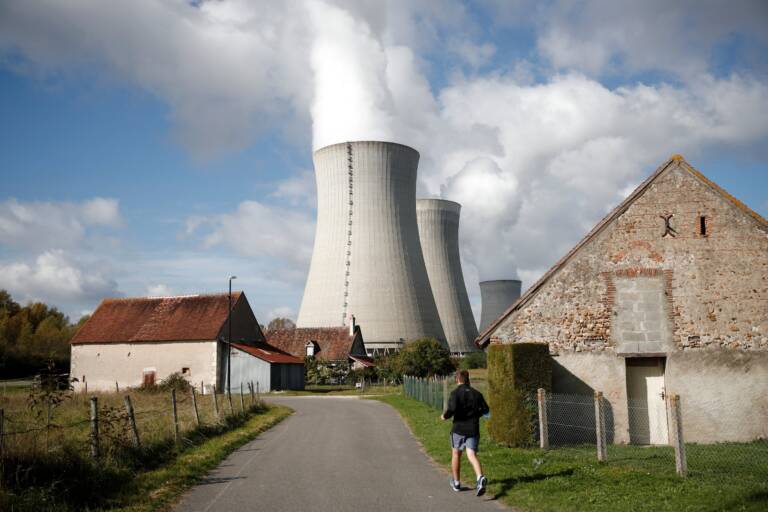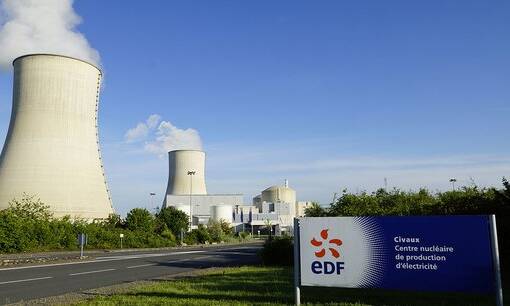To renew nuclear power, France wants to get into foreign debt. It will create a dangerous addiction, but the powerful will smile

Hundreds of billions of euros. This is the order of magnitude of the investment needed to triple the nuclear capacity installed in the world by 2050, as around twenty countries committed to doing three months ago at COP28 in Dubai, the latest international climate conference. To secure these staggering sums, Paris believes that the use of international financial institutions will be essential. And this is one of the main messages that Emmanuel Macron will try to convey today in Brussels, on the occasion of the first international summit on nuclear energy , organized by the Belgian Prime Minister with the help of the International Atomic Energy Association (IAEA) , as reported by La Tribune.
This important meeting, unprecedented in the history of the civil atom, will bring together around fifty countries. 25 heads of state and government will travel together with 25 other ministers. Companies, security authorities and research institutes will also be present. The American delegation will be the largest, ahead of the French one. The Elysée told the press on Wednesday that several cooperation agreements on industrial, research, security and training challenges will be announced.
But the main issue for Paris is financing. “Building a nuclear program is extremely expensive. In addition to industrial and technological cooperation, it is important that development banks offer financing for nuclear programs (…), which each cost tens of billions of euros,” explained the entourage of the French Head of State. “We want to push the development banks (…) to support the relaunch of nuclear power in a more ambitious way,” they insisted.
The search for financing from supranational banking institutions
The financing of a nuclear power plant, especially in France, which has epic times for their construction, is indeed a problem: a power plant is a very complex object to finance. Firstly, because the initial investment represents almost 80% of its production cost, compared to 30% for a gas-fired power plant, for example. “If you are a private investor, you have to wait a long time before seeing the first returns on your investment,” underlines the researcher. Second, it is a risky investment, given the delays and budget slips inherent in these large-scale projects. Finally, the private investor is not sure of obtaining interesting returns "because electricity prices do not favor the price of nuclear electricity", underlines Teva Meyer, researcher at the Institut de relations internationales et stratégiques (Iris).
In this context, international public financing appears to be essential. But very often multilateral banks, including the World Bank, take the principled position of not financing nuclear energy. The EIB, for its part, does not have a principled position against nuclear power, but to accept this type of financing it must have the support of all its members. Germany, Austria and Luxembourg are firmly against it.
The Elysée could draw on the simplest and most banal route: public debt, directly or through EDF, especially since French debt costs 2.83% and that IMF and EIB debt, in any case, would not be free. But we cannot violate the European, almost religious dogma of austerity and ugly, bad public debt. It would be blasphemy in the pro-European church, for which Paris has no choice but to go into debt with supranational bodies. Someone will then pay the consequences.
World Bank or EIB
This time, Paris intends to turn in particular to the World Bank, the European Investment Bank (EIB) and the Asian Development Bank. Our “ambition is to ask them to significantly strengthen their financing offer in this sector and to start technical discussions,” the Elysée explained.
Macron hopes that today's summit and his international position However, the task promises to be very complex. At EIB level it is a matter of convincing states that have said they are apodictically against it, such as Germany and Austria. Do you see the Scholz government, which closed German nuclear power plants in the midst of an energy crisis, starting to finance power plants perhaps a few dozen kilometers from its borders?
However, there are some possible openings. First, the Spanish Nadia Calviño, who is less closed-minded on the topic, recently succeeded the German Werner Hoyer as President of the EIB. Secondly, several observers believe that it would be possible to achieve a European consensus on the financing of smaller nuclear projects, such as small modular reactors (SMRs) and advanced modular reactors (AMRs) , as well as industrial tools related to the fuel cycle, in order to end Europe's dependence on Russia for enriched uranium. But in both cases the French projects are not as advanced as some foreign solutions.
Macron, as Italian politicians did twenty and thirty years ago, is trying to replace the internal political constraint with the external constraint of international public debt. A move which, in the medium to long term, will further take away the government's room for maneuver but, with a view to a changing of the guard in Paris, the imposition of a large foreign debt to finance nuclear power could even be welcomed by the French political class.

Thanks to our Telegram channel you can stay updated on the publication of new Economic Scenarios articles.
The article To renew nuclear power, France wants to get into foreign debt. It will create a dangerous addiction, but the powerful will smile. It comes from Economic Scenarios .
This is a machine translation of a post published on Scenari Economici at the URL https://scenarieconomici.it/per-rinnovare-il-nucleare-la-francia-vuole-indebitarsi-con-lestero-creera-una-dipendenza-pericolosa-ma-i-potenti-sorrideranno/ on Thu, 21 Mar 2024 10:51:57 +0000.

